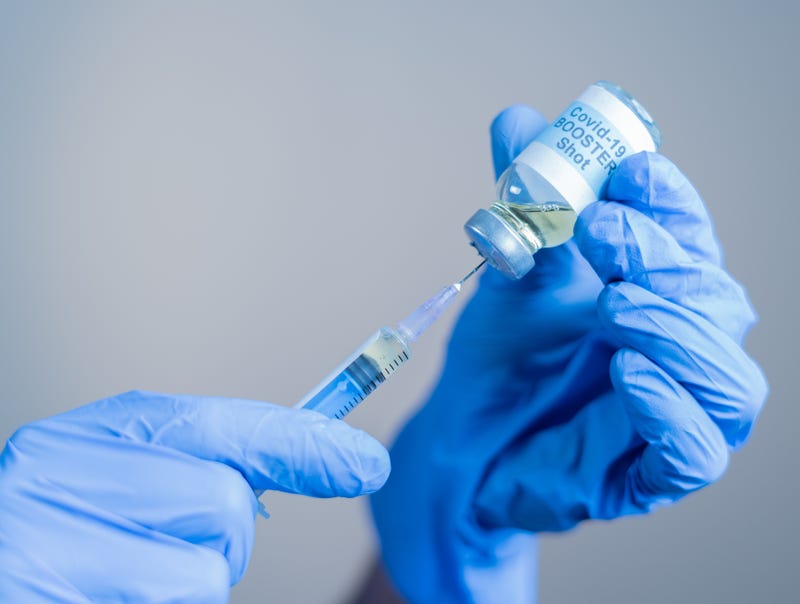
With the new COVID-19 surge approaching its peak, health officials are taking several strategies to help tamp down the surge.
In one instance, the CDC officially recommended boosters for kids 12 to 15 on Wednesday but it's become clear there are limitations to how helpful boosters are.

"Right now, the boosters that we're talking about are just another dose of the same thing that became available towards the end of 2020," said Dr. Deepta Bhattacharya, an immunologist with the University of Arizona on KCBS Radio's "Ask an Expert" with Holly Quan and Eric Thomas on Thursday.
The ability for this version of the booster to remain effective is lessening, mainly due to how much the virus has changed in the last year, he said.
What sets omicron apart from other variants is that its mutations are in places where antibodies typically stick to prevent the virus from getting into cells. "There's just a little less buffer room for the boosters, in terms of what we ask them to do, how much they can decline and how much they can still work," said Bhattacharya.
The boosters can still help, but their maximum potential has diminished since the virus changed so much.
"Omicron in some ways it sort of revealed a lot of the things the virus can do," he said. "I call it like a greatest hits album of mutations."
Essentially this means that even if there is a new variant coming out in the near future, it's not likely to be dramatically different from what's already out there, he said.
Designing a new vaccine taking into consideration the original variant of the virus as well as omicron would cover a lot more ground for potential future mutations.
"I don't know if it's possible to permanently checkmate the virus," said Bhattacharya. It's not likely to end completely, like with polio, but it is possible to get to a point where people aren’t going to need boosters every few months.
It's unsustainable to continue asking people to get boosted, as fewer people of the vaccinated population will actually go out and do it, he said.
Retooling the vaccines will help get "more bang for our buck," he said.
An omicron-matched booster will likely become available at the end of March, or early April. "That's optimistic, but it is coming," said Bhattacharya.

